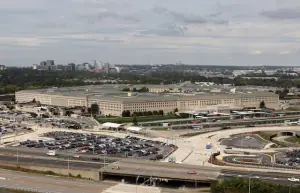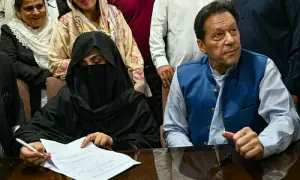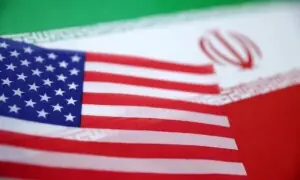Retrogressive thinking is dangerous for Pakistan: Fawad
2 min readInformation Minister Fawad Chaudhry on Monday said that retrogressive thinking was dangerous for Pakistan, as the country was living among two emerging extremist regimes in the region.
He was addressing the inaugural ceremony of the ‘Digital & Photographic Exhibition’ in Islamabad.
“Unfortunately two extremist regimes have emerged on the right and left of Pakistan, India with BJP and Afghanistan with the Taliban. The biggest fight for Pakistan is against these two biggest extremist thinking. So far Pakistan is a ray of hope in this region,” he said.
He lamented how attacks on Muslims in India was a new normal and also mentioned women's issues in Afghanistan.
“We want to fully help the Afghan people. But saying that women can’t travel alone or go to schools and colleges — this kind of retrogressive thinking is a danger for Pakistan.”
He was referring to Taliban edict on Sunday in which they said women seeking to travel long distances should not be offered transport unless they are accompanied by a close male relative.
The guidance, issued by the Ministry for the Promotion of Virtue and Prevention of Vice, also called on all vehicle owners to offer rides only to those women wearing hijabs.
‘Reclaiming Quad-i-Azam’s Pakistan’
The information minister said that the real challenge for Pakistan was “how to reclaim the Pakistan of Quaid-i-Azam Muhammad Ali Jinnah” which was “never a religious state”.
He quoted Ashfaq Ahmed’s December 25 article, which has been published in one of the leading newspapers of Bangladesh, in which the writer has claimed that Jinnah didn’t know what he wanted when he was making Pakistan.
“Such thinking is completely wrong. Many writers in India and Bangladesh have written this because of confusion, which is emerging in Pakistani state,” Fawad said, adding that the Quaid-i-Azam had explained about the kind of Pakistan he wanted in his three speeches – first on August 11 1947 to the Constituent Assembly, second while addressing the army, and his talk with the bureaucracy.
Jinnah's talks with the [aforementioned] “big three organs” was the base of the new Pakistan he had formed, he added.
First of all, the minister said that confusion should be erased that Quaid-i-Azam wanted a religious state. “Quaid-i-Azam never saw Pakistan as an Islamic state and all these people who fool peoplein the name of Quaid-i-Azam that the meaning of an Islamic country was a religious country it was not completely like this.”
"Quaid-i-Azam and Allama Iqbal were modern and progressive looking men," he said.
For the latest news, follow us on Twitter @Aaj_Urdu. We are also on Facebook, Instagram and YouTube.























Comments are closed on this story.